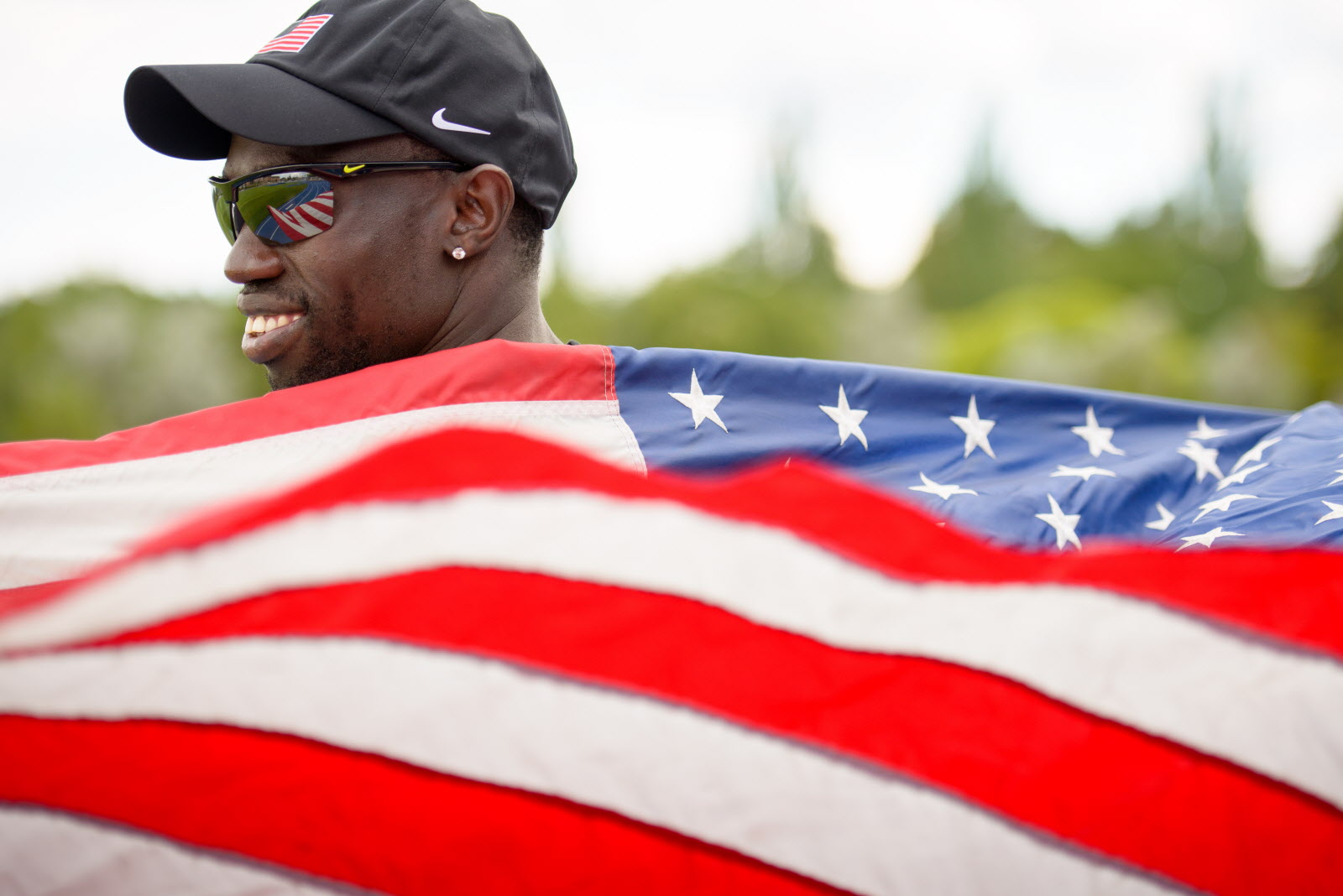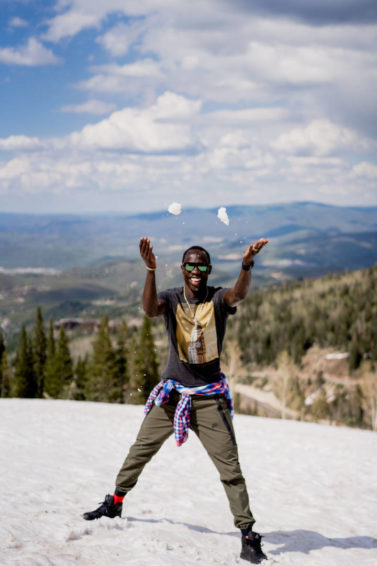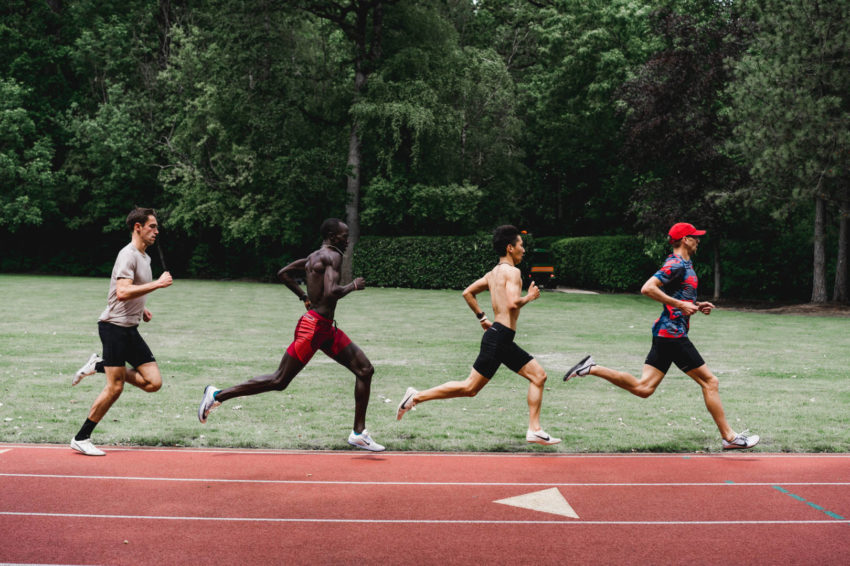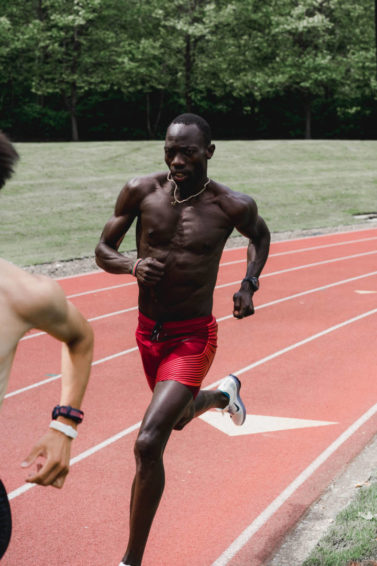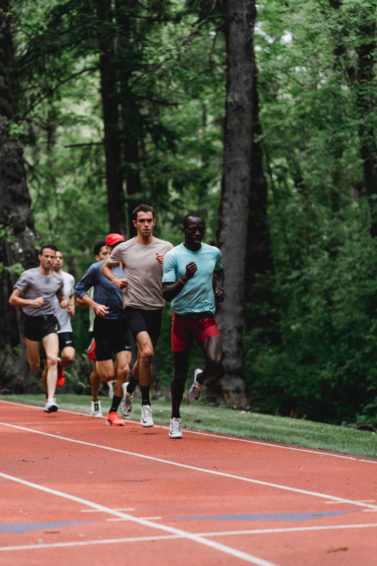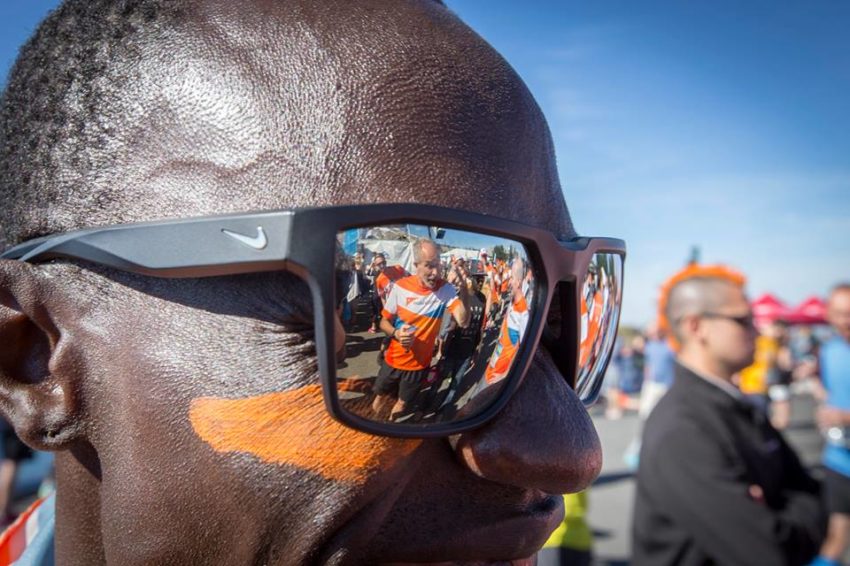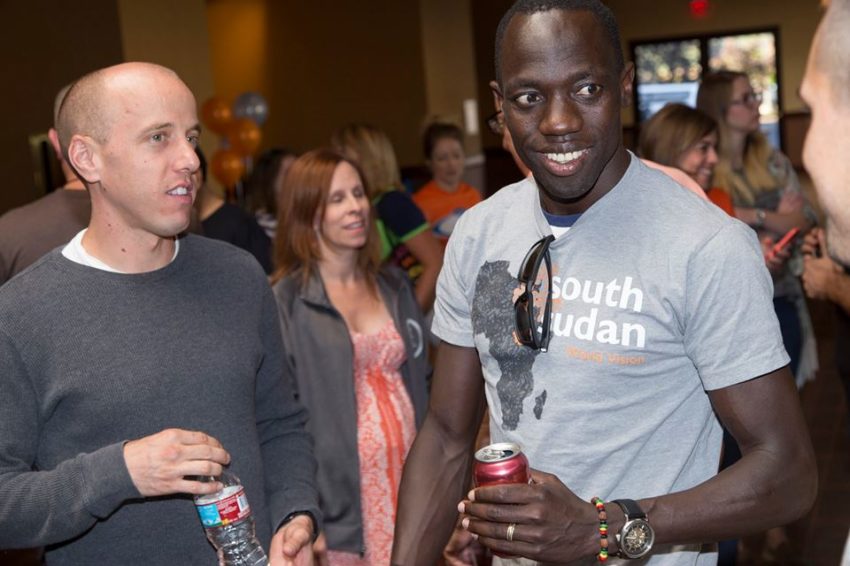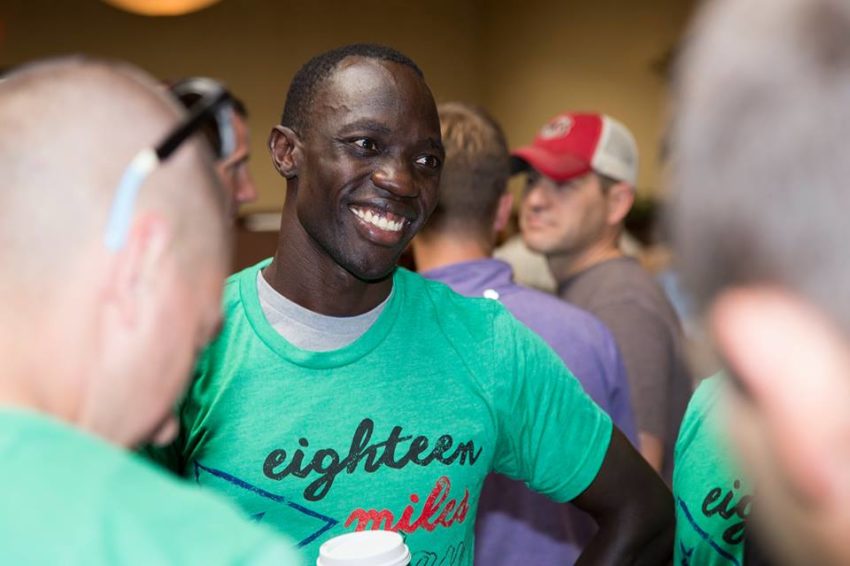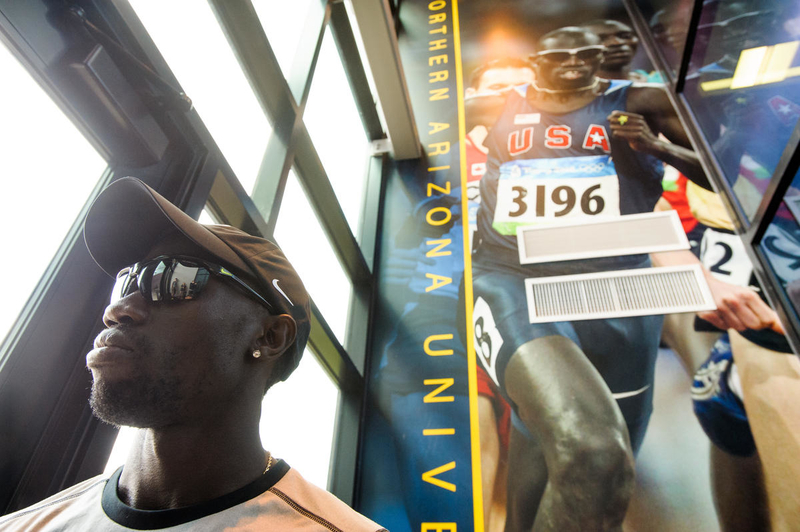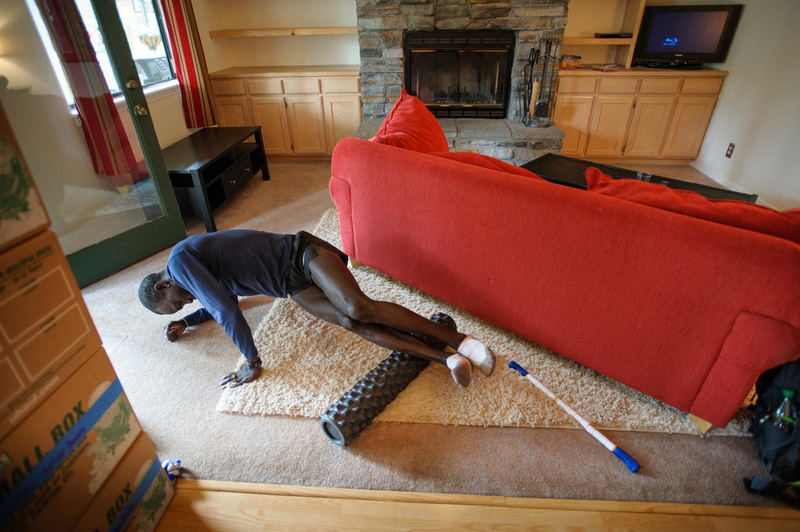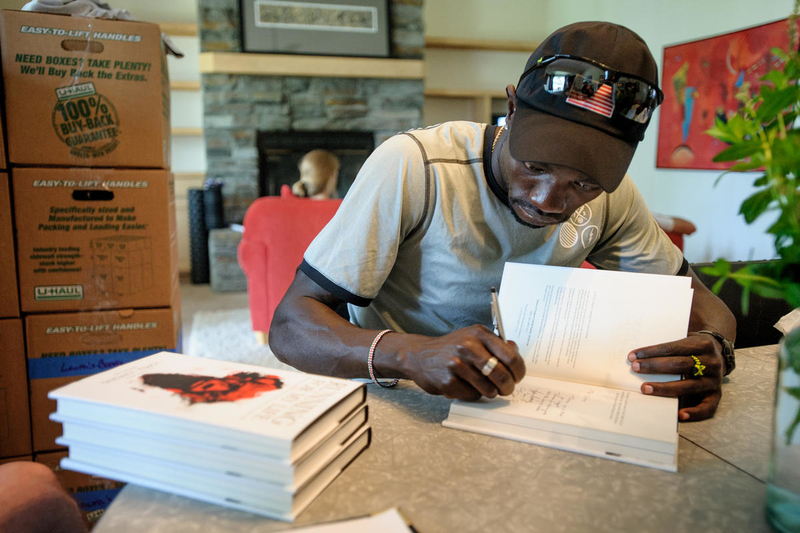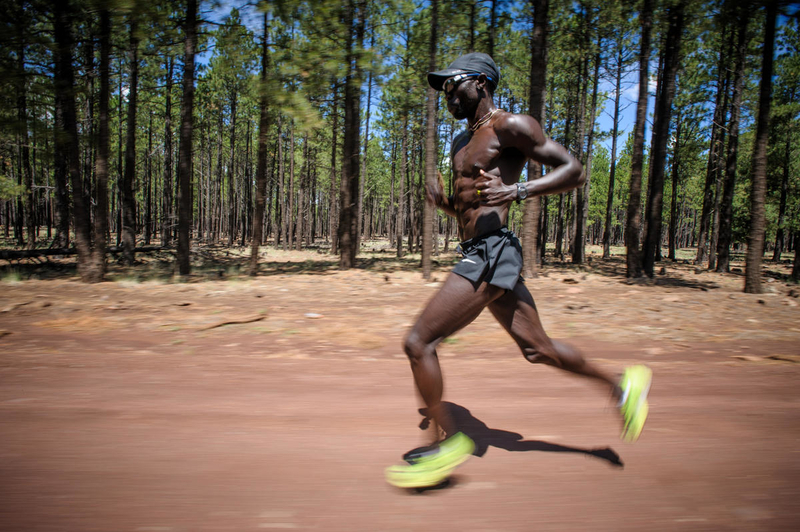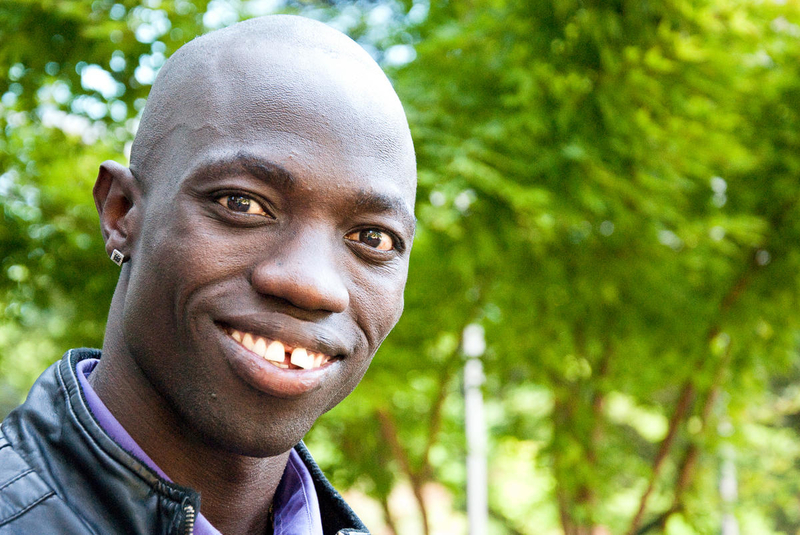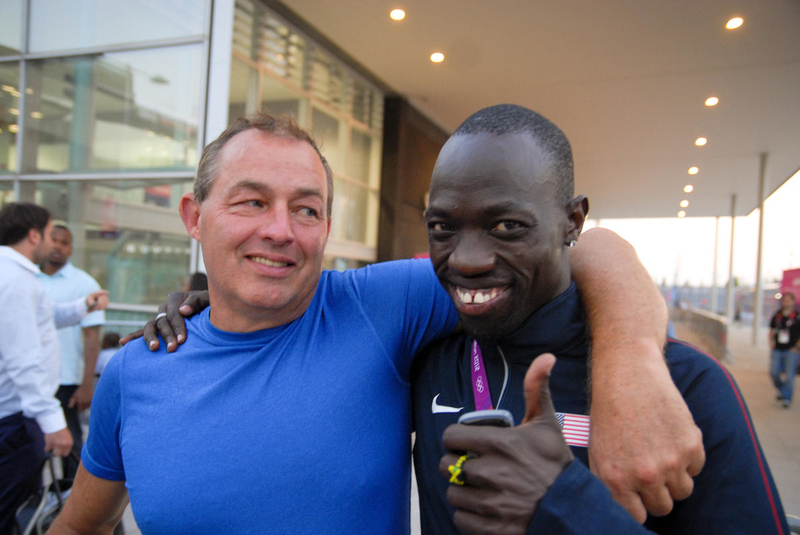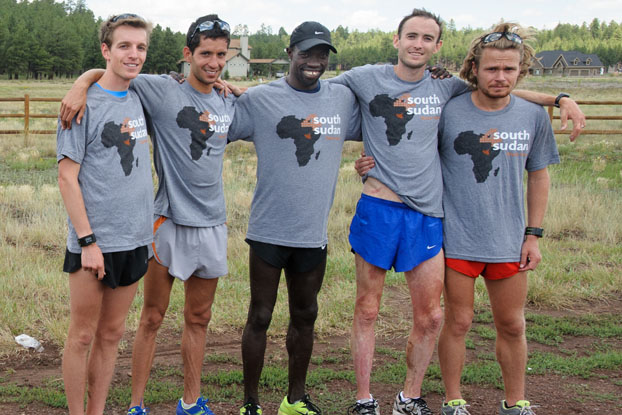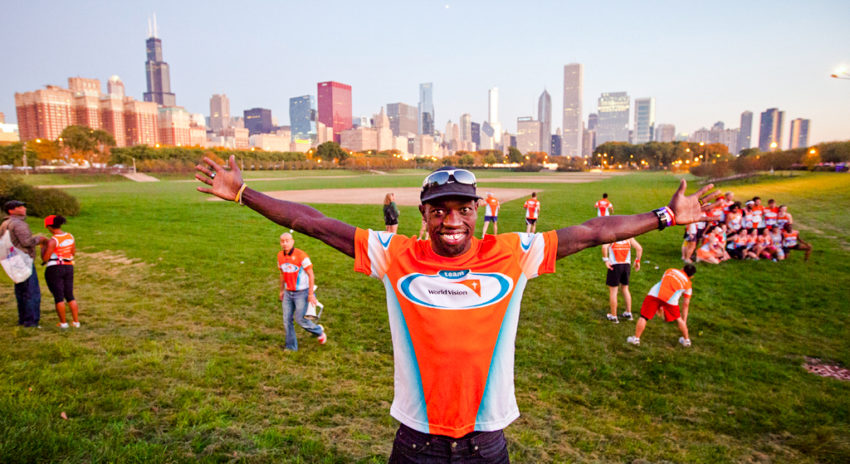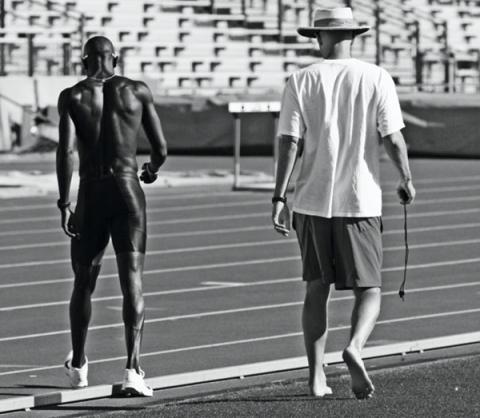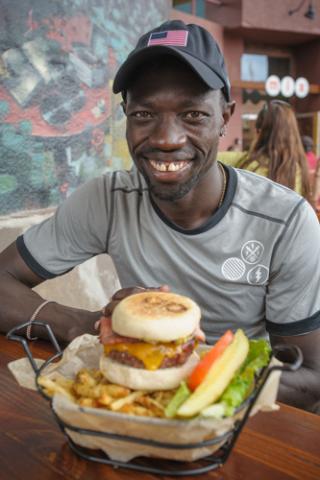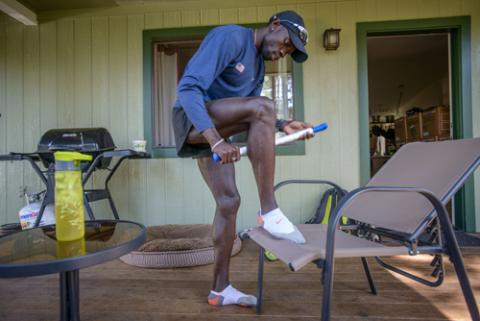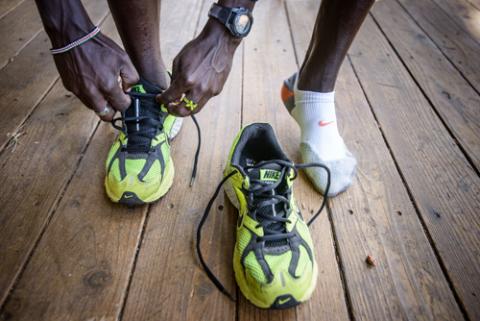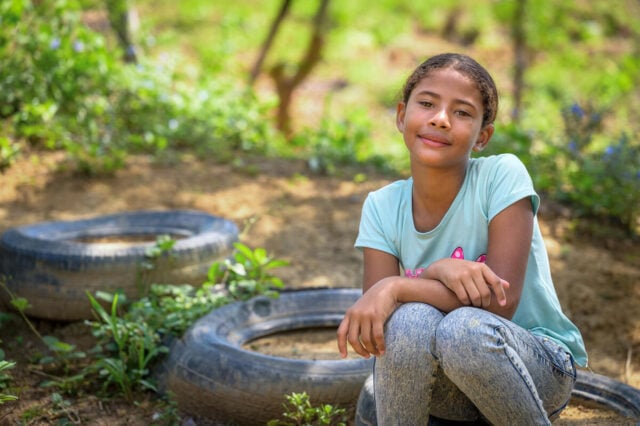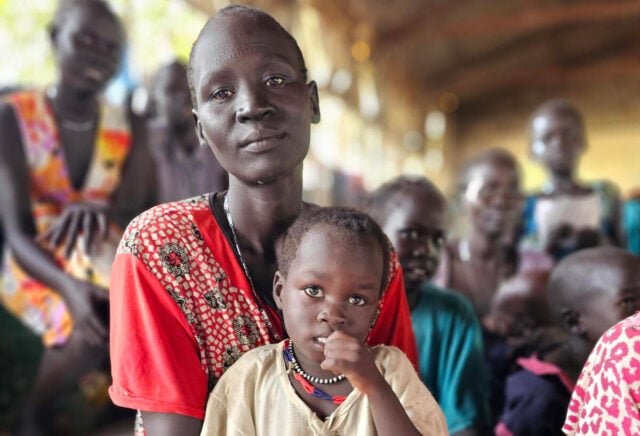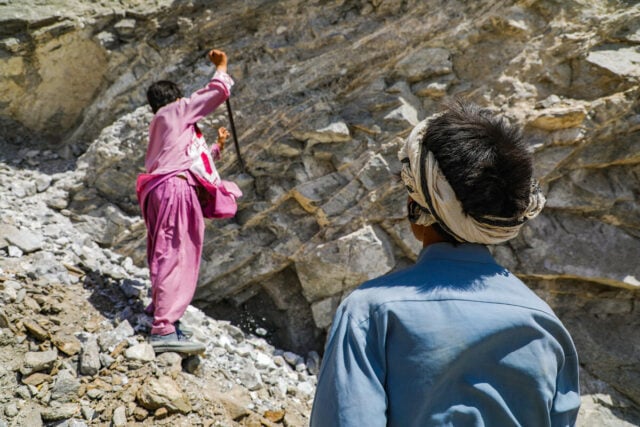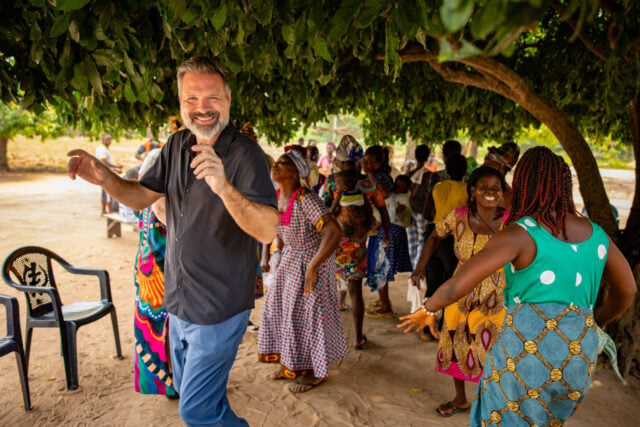Lopez Lomong has traveled a long way in his life. From a sordid Sudanese prison camp after he was kidnapped at age 6, he went on to the ornate pavilions of the 2008 Summer Olympic games in Beijing. But one thread flows through it all: running.
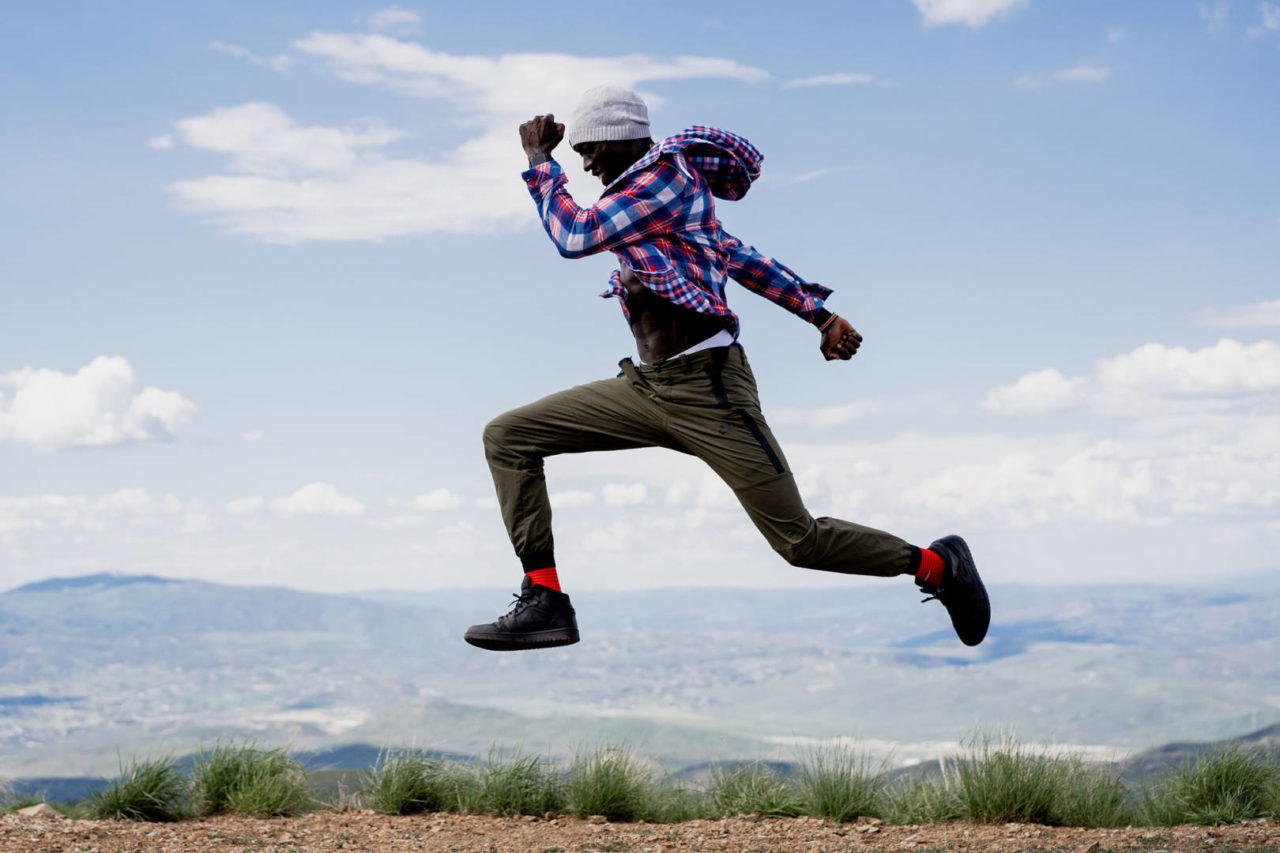
As Lopez chronicled in his memoir, Running for My Life, he was abducted by the Sudan People’s Liberation Army. Lopez was among 20,000 Sudanese children, called the Lost Boys of Sudan, who were uprooted from their homes in southern Sudan during the second Sudanese civil war.
For weeks, he was locked in an unsanitary hut in a prison camp with little food. Many boys cooped up with him died during the night.
With the help of three older boys, Lopez escaped. The fugitives ran for three days and crossed into Kenya where they were taken to a refugee camp. Lopez lived in the camp for 10 years.
“We are just living in a place that is a no-man land,” he says. “There is no flag flying over our heads. We do not have any place to call home.”
He also faced ridicule there from other refugees.
“The name calling that you have to go [through] is really hard for a person who just ran away from death,” Lopez says. “And then now you’re being called something.”
But in the midst of his trials, God was working.
A dream is born
As a boy, his first love was soccer, but Lopez developed lightning speed as a runner when boys were required to run around the perimeter of the refugee camp — 18 miles — before being allowed to play on the camp’s soccer field.
“I ran fast because I loved soccer,” he says.
When he was 15, he saw Michael Johnson run in the 2000 Summer Olympics in Sydney, and it sparked something new in him.
“That gave me fire,” he says. “I didn’t get to see the golden shoes because it was a black-and-white TV, but I saw him running, and I looked at him, and I was like, ‘I want to be as fast as this human being.’ This man ran with a passion, with a love, with something greater than himself.”
As he watched Michael listen to the national anthem play, he saw a tear roll down his cheek. He saw the American flag being raised, and the emotions of winning a medal for your country touched him. He didn’t know how he could follow in Michael’s footsteps — especially given he was living in a refugee camp — but he just knew that’s what he wanted to do. “I basically put it on God’s hands to help me get there,” Lopez says.
He continues by saying, “A dream cannot happen without a hope and without God involved in it.”
A new life in America
In 2001, Lopez left the refugee camp in Kenya to be resettled in America. About 4,000 Lost Boys came to the United States that year.
Lopez was adopted by Rob and Barb Rogers of Tully, New York, and settled into suburban America, where he marveled at hot and cold running water and indoor lighting.
As a 16-year-old, he spoke only a smattering of English. His native tongue is Swahili, and he simply answered “yes” to everything. But Lopez was eager to learn, and he graduated from high school on time.
And of course, Lopez kept on running. He was the fastest runner in his high school and helped lead his cross country and track teams to sectional and state titles. Through his high school experience, he learned the true meaning of running together and says, “From that moment, another instinct of mine kicked in because I was not running for myself. I am running for my team.”
Then at Northern Arizona University, he won two NCAA championships. Lopez credits Barb and Rob with not only helping him secure a college education, but also regularly attending all his running events — a degree of parental support he says his fellow competitors did not enjoy.
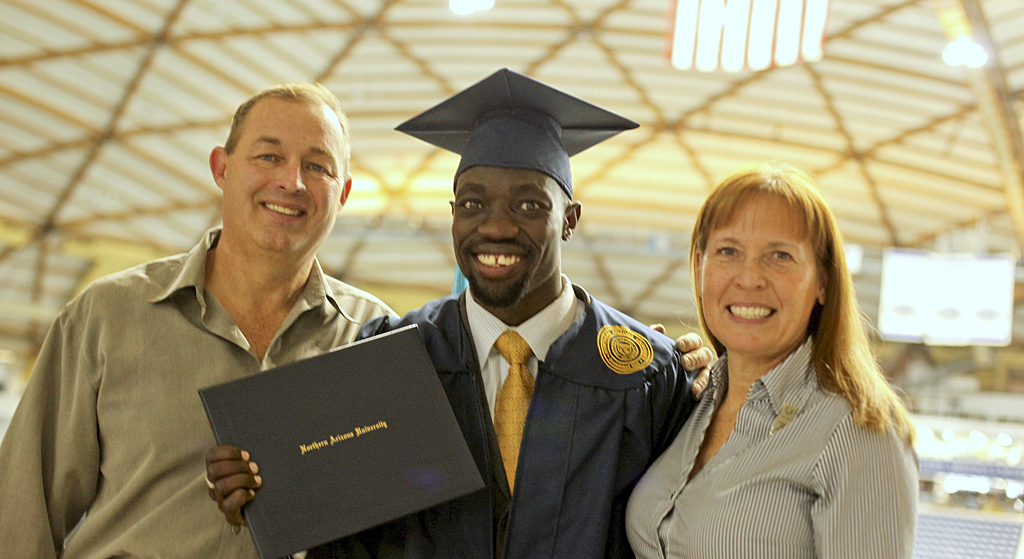
Lopez turned pro in 2007 and became a U.S. citizen in time to qualify for U.S. Olympic trials the following year.
In 2008, as a member of the American team, Lopez carried the United States flag for the opening ceremony of the Summer Olympics in Beijing, where he made it into the semifinals of the 1,500 meters. In the 2012 Summer Olympics in London, Lopez placed 10th in the men’s 5,000 meters race.
Lopez continues to train and travel extensively, both as a competitor and pacer for major international distance competitions.
Giving others a chance
What powers Lopez even more than his passion for running is an even deeper passion to help the most vulnerable people in South Sudan. It’s a passion he shares with his wife, Brittany.
“I was given an opportunity; I was given a chance to tell my story,” Lopez says. “It’s no longer about me. It’s about them. It’s about people going through all these things as we speak: the children who don’t have education, the kids who are dying every day … the poverty that people are going through right now.
“And clean water. Have you ever gone without clean water or even water? And yet there’s people walking 15 to 20 miles to just fetch two gallons of clean water somewhere, and it’s not enough.”
While establishing his career as an outstanding middle distance runner, Lopez started the Lopez Lomong Foundation in late 2011 to give back to his native country of South Sudan. The foundation joined with World Vision to launch the 4 South Sudan campaign to raise money and awareness to bring clean water, basic healthcare, access to education, and life-saving nutrition to children. Recognizing his advocacy work, Lopez was named the Visa Humanitarian of the Year in 2012.
Since 2013, through the Hood to Coast Relay race — a fundraising venue in which participants run 199 miles from Oregon’s Mt. Hood to the Pacific coast — Lopez and Team World Vision have raised $10.2 million.
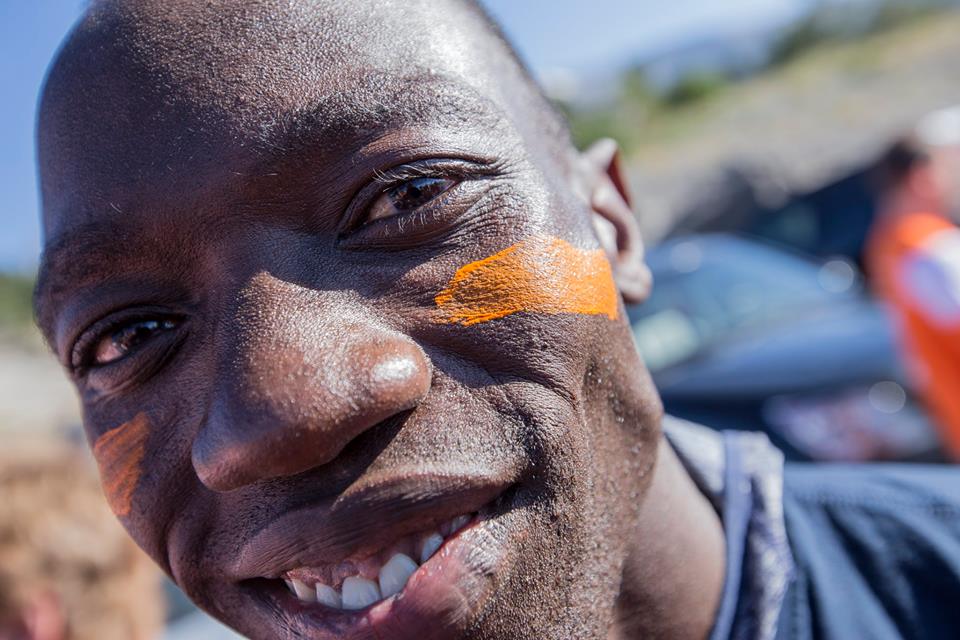
Lopez says, “God is with us, and God wants us to be able to continue doing this, providing clean water for the innocent people, women, children, and elderly in South Sudan and around the world.”
Lopez has seen World Vision’s work up close and has seen the impact it’s making on people and their communities.
“I found World Vision because I know that they do noble work, amazing work, in all of the world,” he says. “I saw this in Kenya. I saw this also in South Sudan.
“You see the actual work be done, and they actually are helping people. Wherever World Vision goes to work, they will work for 10, 15, 18 years, and this is changing people’s mindset to be self-reliant and teaching people to be able to provide for themselves when World Vision leaves — giving them those powers and the way for them to be able to sustain themselves.”
Barb, Lopez’s adoptive mother, says he appreciates how difficult it is when people don’t have choices and opportunities.
“I think that’s why he is trying to make a difference and help others,” Barb says. “Some people want to be known for the sake of being known, that’s not where he is at; that’s not his drive.”
His desire to help others extends to his family as well. Lopez is also proud of his two brothers, Peter and Alex, who are also runners, and brought them to the U.S. to pursue their dreams. They were some of the fastest U.S. collegians for their age. Peter ran for the national champion Northern Arizona cross country team that won the 2018 NCAA Championships. Lopez jokingly chalks up their success to great genes and the fact that they had three square meals a day, unlike his one meal per day in the Kenya refugee camp.
He’s grateful that his adoptive parents took a chance on him and welcomed him into their home. He also encourages others to learn more about refugees and support them.
“Refugees bring in different perspectives in life — different stories,” Lopez says. “And we should be able to embrace that. And we should be able to really encourage people, especially Americans, to go back and really get to know a refugee somewhere and talk to them and ask them where they came from. Why are they here? Because they didn’t just show up to come here. There is something that caused them to come here. … I hope we have people open their hearts the way they opened their heart for me and welcome these refugees and help them and care about them.”
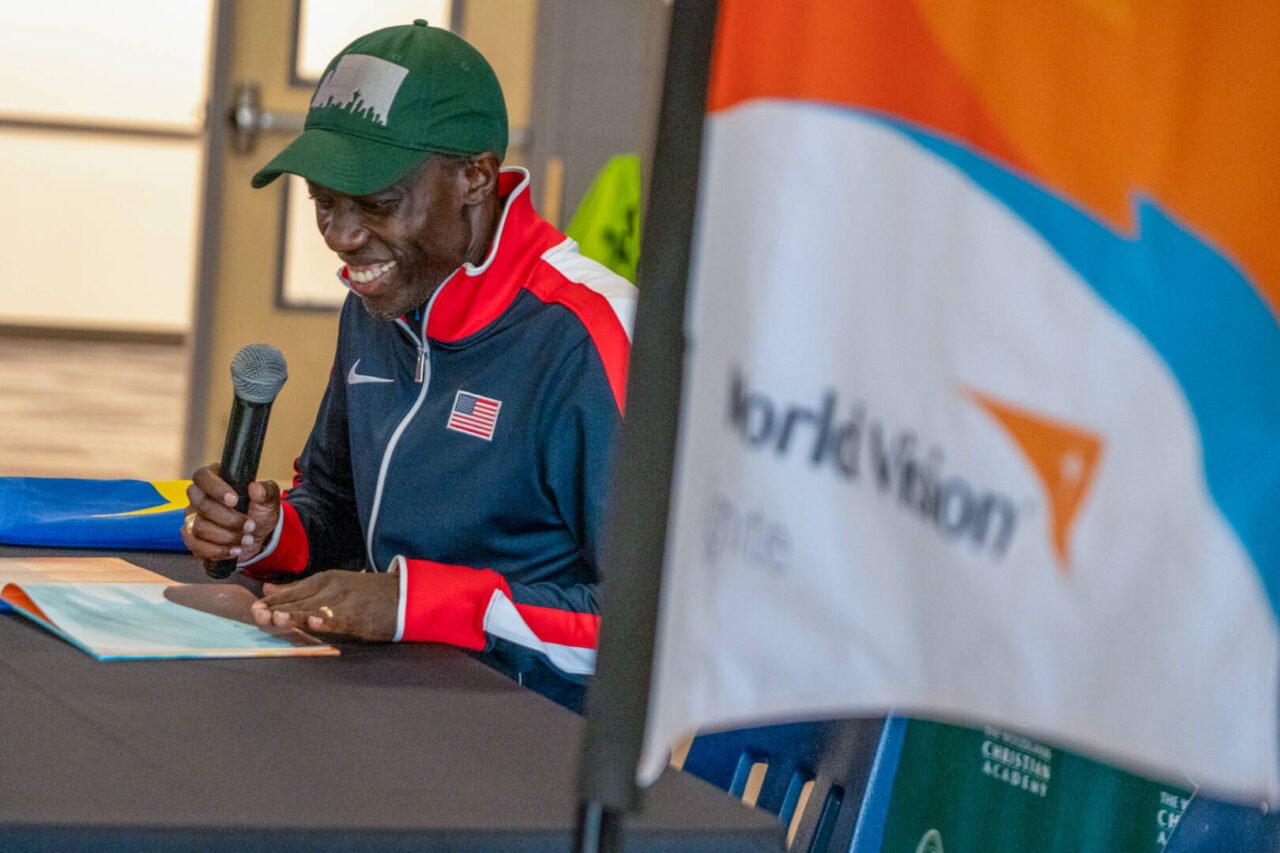
Guiding the next generation
On November 8, 2023, Lopez visited the students of The Woodlands Christian Academy near Houston, Texas, where he shared his story with students ranging in age from kindergarten through twelfth grade. He came in partnership with World Vision’s Ignite program. Ignite works with Christian schools to help raise students’ awareness of global issues, helping them understand that they’re not too young to make a difference.
What better way to do that than hearing from one of the Lost Boys of Sudan, a former U.S. Olympian?
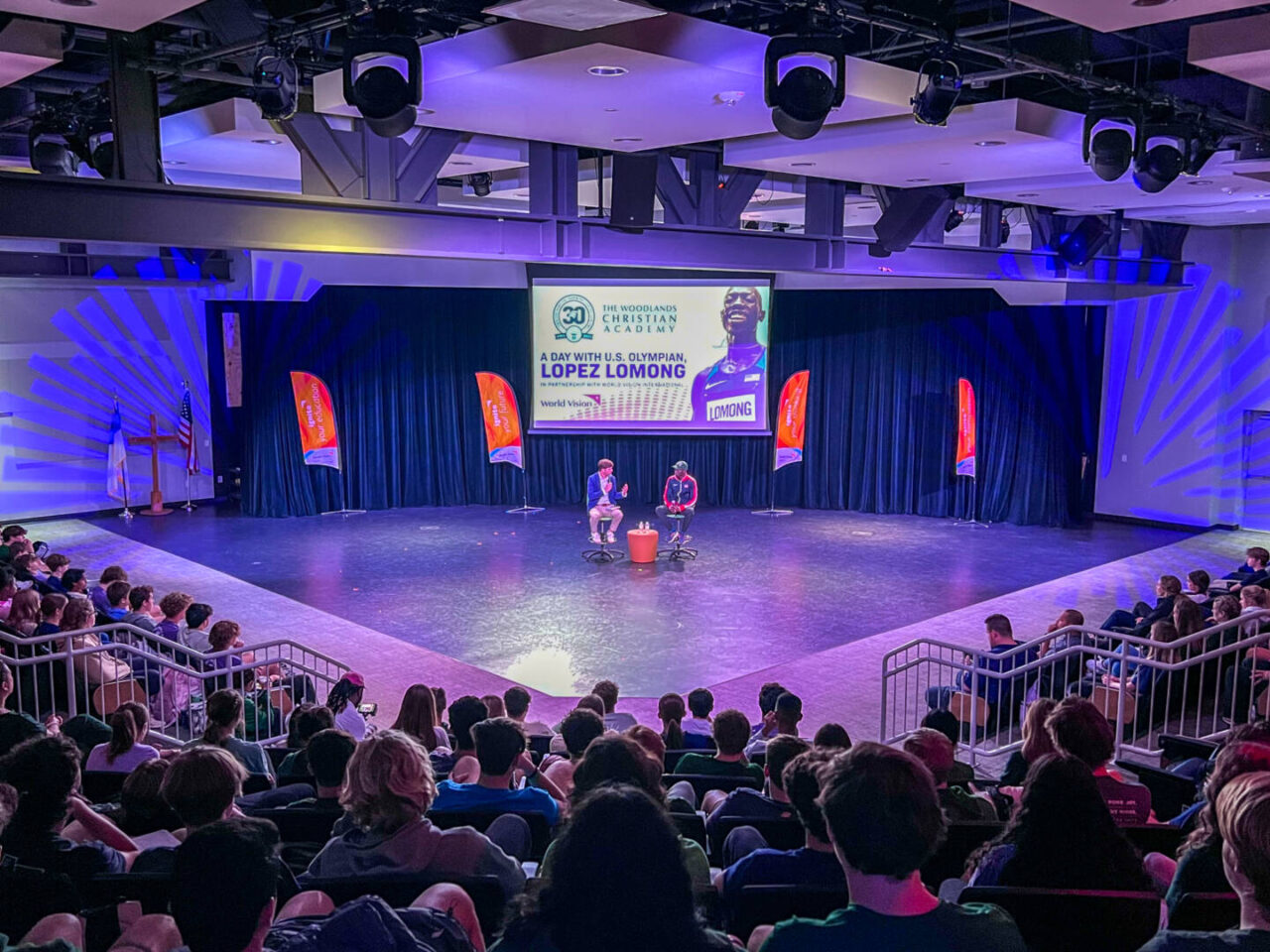
Lopez urged the Woodlands students to be change makers in the world. He told them about the many “angels” he’s felt surrounding him throughout his life, implying that the young people could also serve in the same way for others.
One young man asked Lopez, “How were you able to maintain mental clarity and emotional control in a situation where you could die any time?” Lopez responded, “God was with me. God showed me a way. He opened the door for me and said, ‘Follow me this way.’”
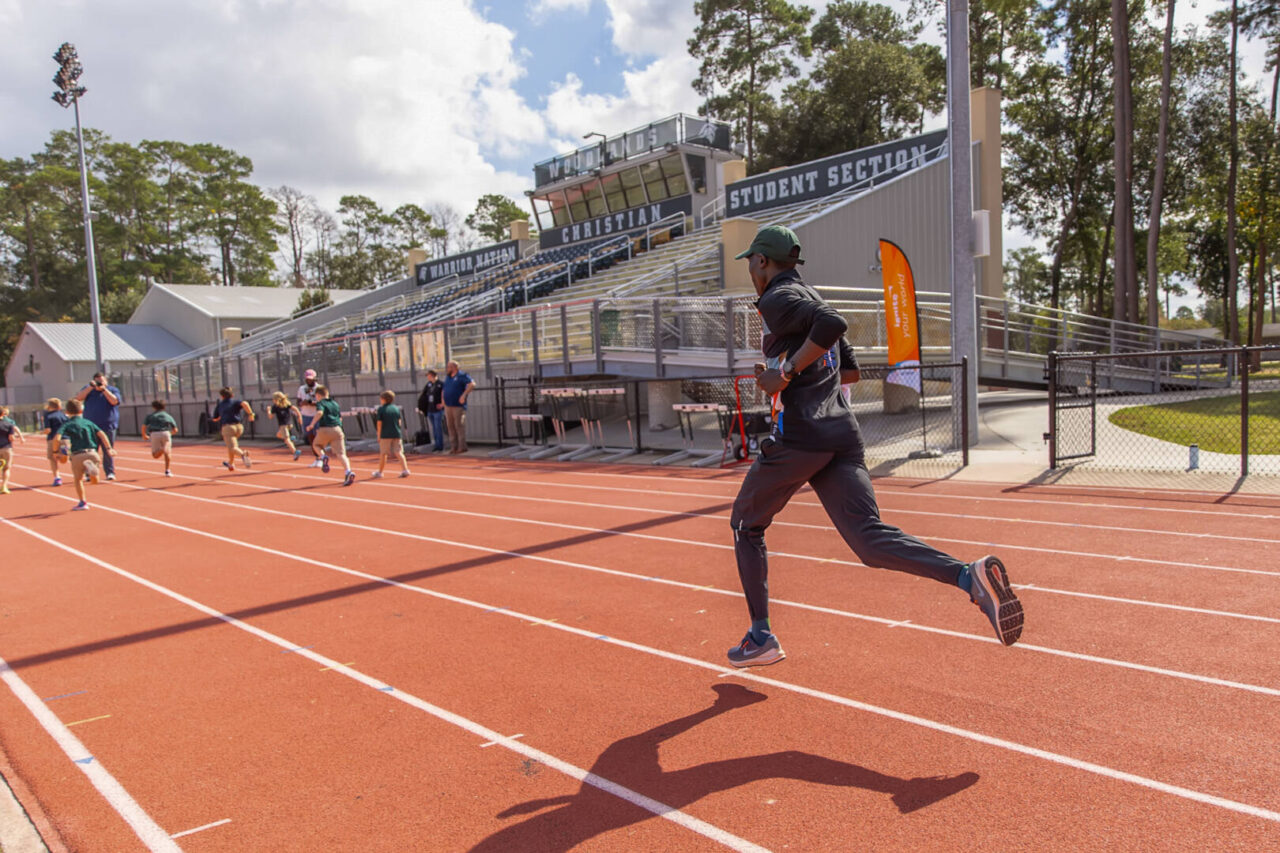
The incredible fruit of following where God led: Lopez has found a way to forgive the soldiers who kidnapped him, forcing him to flee his home and his country as a boy. And it’s brought him all over the nation telling his story, including here at The Woodlands, encouraging the students “to be engaged in their community; to do something bigger than themselves; to use their platforms.”
Steve Haas, Kristy J. O’Hara-Glaspie, and Laura Reinhardt of World Vision’s staff in the U.S. contributed to this story.
